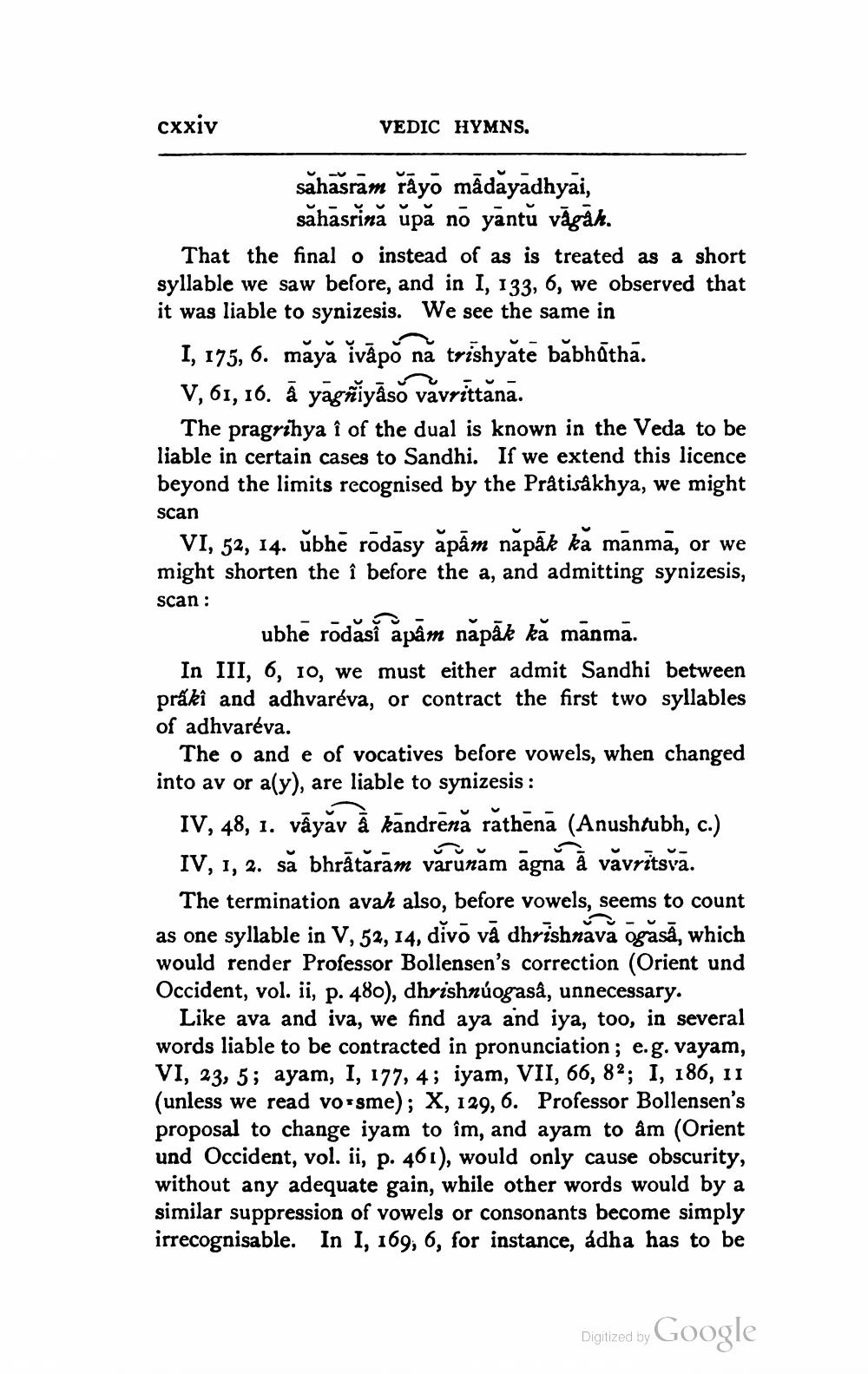________________
cxxiv
VEDIC HYMNS.
sahasram rayo madayadhyai, sahasrina upă no yantu vāgah.
That the final o instead of as is treated as a short syllable we saw before, and in I, 133, 6, we observed that it was liable to synizesis. We see the same in
I, 175, 6. maya ivâpo na trishyate babhāthā.
V, 61, 16. a yagniyâso vavrittana.
The pragrihya î of the dual is known in the Veda to be liable in certain cases to Sandhi. If we extend this licence beyond the limits recognised by the Prâtisâkhya, we might
scan
VI, 52, 14. ubhe rodasy apām nǎpāk ka manmā, or we might shorten the î before the a, and admitting synizesis,
scan:
ubhe rodasi apam napāk kā mānmā.
In III, 6, 10, we must either admit Sandhi between prakî and adhvaréva, or contract the first two syllables of adhvaréva.
The o and e of vocatives before vowels, when changed into av or a(y), are liable to synizesis:
IV, 48, 1. vâyăv à kandrena rathena (Anushtubh, c.) IV, 1, 2. să bhrātārām varunām agna a vavritsva.
༦༦༦
7
The termination avah also, before vowels, seems to count as one syllable in V, 52, 14, divo vã dhrishnava ogasa, which would render Professor Bollensen's correction (Orient und Occident, vol. ii, p. 480), dhrishnúogasâ, unnecessary.
Like ava and iva, we find aya and iya, too, in several words liable to be contracted in pronunciation; e.g. vayam, VI, 23, 5; ayam, I, 177, 4; iyam, VII, 66, 82; I, 186, 11 (unless we read vo-sme); X, 129, 6. Professor Bollensen's proposal to change iyam to îm, and ayam to âm (Orient und Occident, vol. ii, p. 461), would only cause obscurity, without any adequate gain, while other words would by a similar suppression of vowels or consonants become simply irrecognisable. In I, 169, 6, for instance, ádha has to be
Digitized by Google




